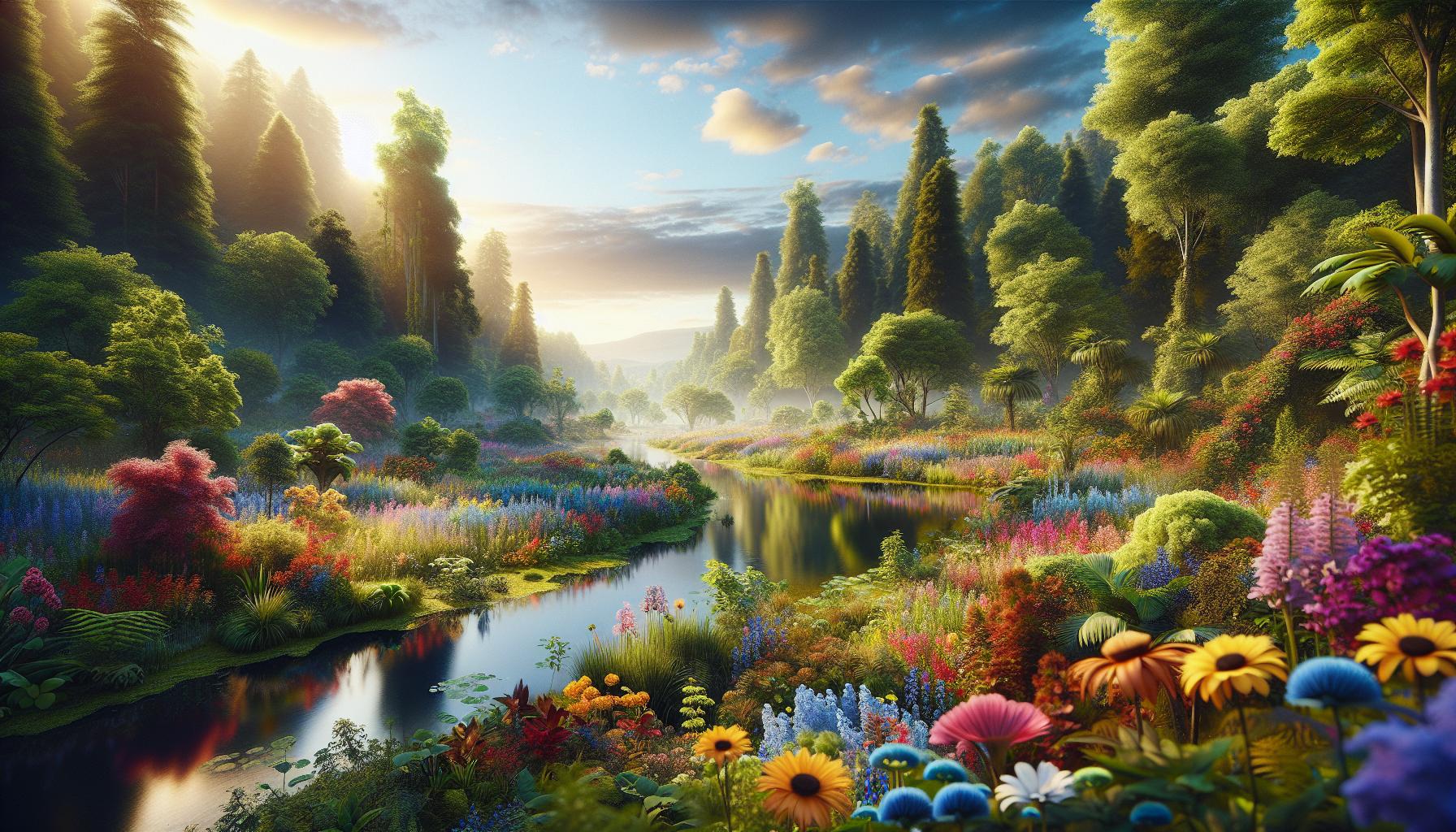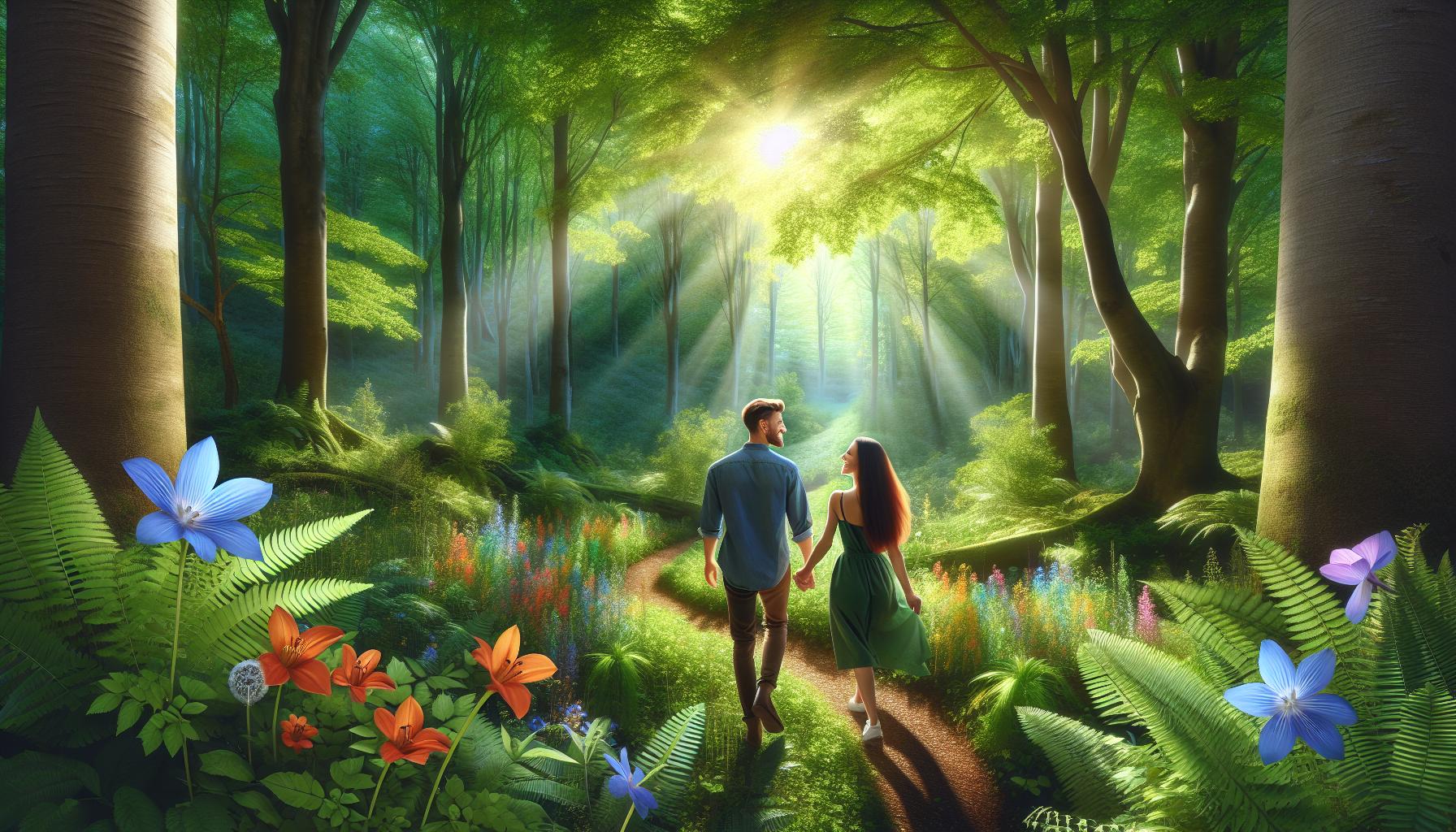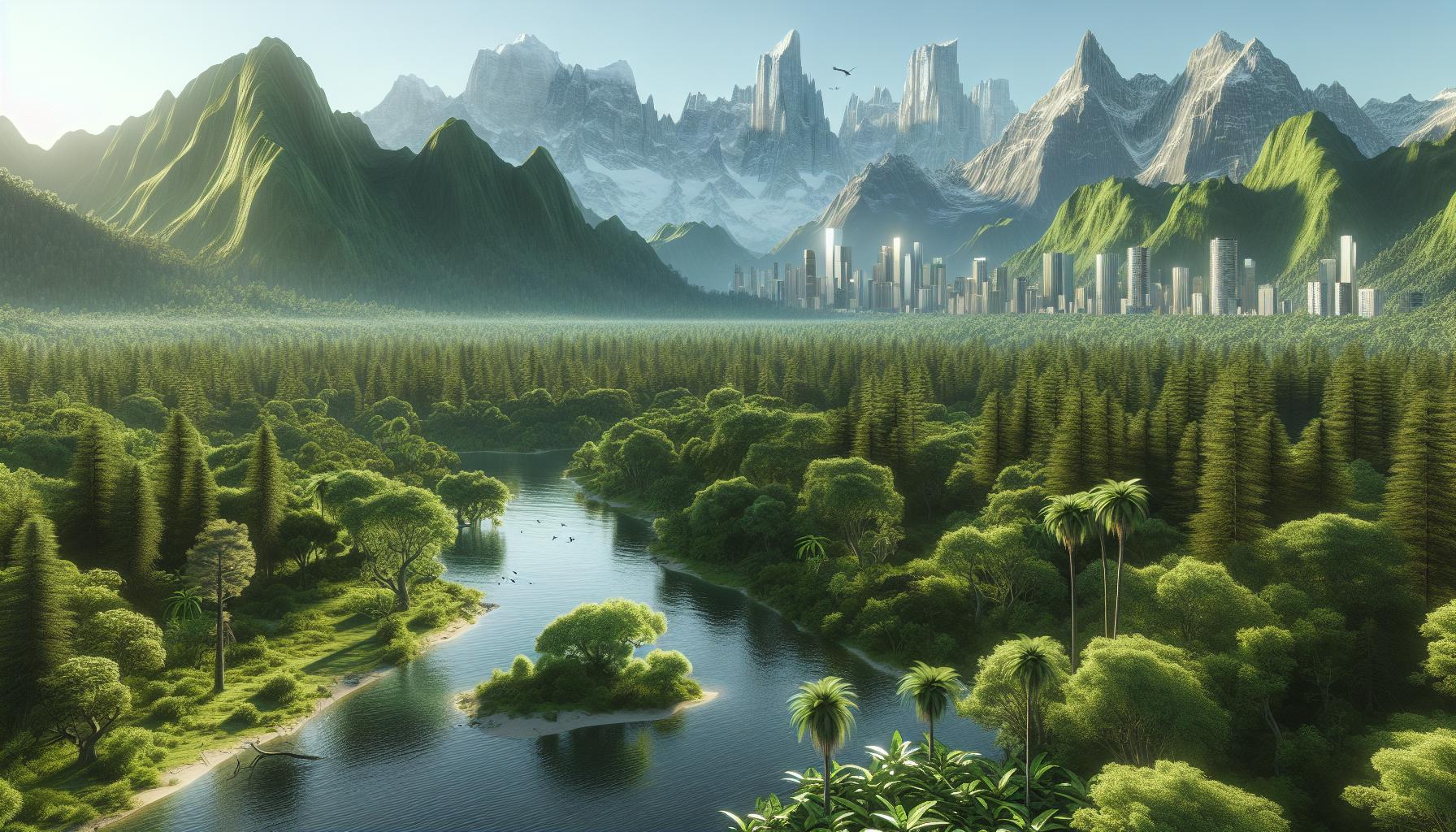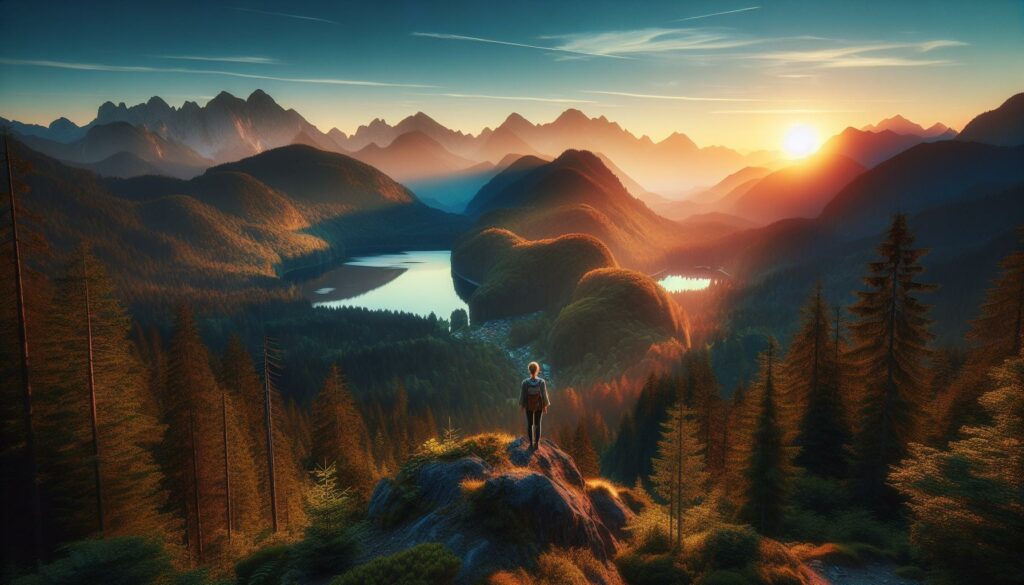Nature has a way of captivating us, drawing us in with its stunning landscapes and intricate ecosystems. I’ve always found solace in the great outdoors, where every rustling leaf and flowing stream tells a story. The beauty of nature isn’t just about what we see; it’s about how it makes us feel, connecting us to something greater than ourselves.
In this article, I’ll explore the enchanting aspects of nature that often go unnoticed. From the vibrant colors of a sunset to the delicate patterns of a snowflake, these elements remind us of the world’s wonders. Join me as we dive into the breathtaking realm of Beautiful:0rz-ovxnfnk= Nature, uncovering its secrets and celebrating its power to inspire and heal.
Key Takeaways
- Nature’s Impact on Well-Being: Engaging with beautiful nature enhances personal experiences and fosters mental and physical well-being, emphasizing the importance of outdoor exploration.
- Diverse Ecosystems: Various ecosystems, including forests, wetlands, and coral reefs, contribute to biodiversity and climate regulation, playing critical roles in sustaining life on Earth.
- Aesthetic Appreciation: The vibrant colors and intricate patterns found in flora and fauna create striking visual experiences that evoke harmony and wonder in nature lovers.
- Cultural Significance: Beautiful nature deeply influences human culture and identity by inspiring art, literature, and traditional practices, solidifying our connection to the environment.
- Seasonal Dynamics: The changing seasons reveal the dynamic beauty of nature, each season bringing unique visual and sensory experiences that celebrate the wonders of the natural world.
- Conservation Awareness: Recognizing the splendor of beautiful nature promotes a sense of responsibility towards conservation efforts, emphasizing the need to protect our precious environments for future generations.
Beautiful:0rz-ovxnfnk= Nature
Beautiful:0rz-ovxnfnk= Nature encompasses diverse elements that create awe-inspiring scenes and experiences. It includes intricate ecosystems, stunning landscapes, and the variety of life forms thriving within them. Engaging with this beauty offers a deeper appreciation for the interconnectedness of all living things.
- Ecosystems: Various ecosystems, like forests, wetlands, and coral reefs, showcase natural diversity. Each ecosystem supports unique species and contributes to the planet’s health.
- Landscapes: Dramatic landscapes range from towering mountains to serene beaches. Landscapes influence climate, provide habitats, and serve as natural resources.
- Flora and Fauna: Different plant and animal species play crucial roles in sustaining life. For instance, pollinators like bees support biodiversity, while trees produce oxygen essential for survival.
- Seasons: Changing seasons reveal nature’s dynamic beauty. Spring’s blossoms, summer’s greenery, autumn’s colors, and winter’s frost each present distinct visual and sensory experiences.
- Natural Phenomena: Events like rainbows, lightning storms, and volcanic eruptions illustrate nature’s power. These phenomena remind us of nature’s unpredictability and grandeur.
Exploring Beautiful:0rz-ovxnfnk= nature fosters connection, evokes wonder, and inspires conservation efforts. Recognizing its splendor not only enhances personal experiences but also promotes awareness of our responsibility to protect these precious environments.
Key Features of Beautiful:0rz-ovxnfnk= Nature

Beautiful nature showcases a variety of captivating features that enhance its charm and appeal. These elements invite exploration and appreciation.
Aesthetic Elements
Aesthetic elements play a crucial role in defining beautiful nature. Vivid colors in flowers, trees, and landscapes create striking contrasts. Gentle sunlight highlights textures, bringing depth to views. Serene water bodies reflect their surroundings, adding layers to the scenery. Captivating patterns, like the symmetry of leaves or the formation of clouds, evoke a sense of harmony. Biodiversity contributes to nature’s visual richness, with various species cohabitating in balanced ecosystems.
Unique Characteristics
Unique characteristics of beautiful nature include its remarkable variety and adaptability. Different ecosystems harbor diverse life forms, each thriving under specific conditions. Mountainous terrains, coastal beaches, and lush forests provide distinct habitats, showcasing varied flora and fauna. Seasonal changes introduce novel elements, altering landscapes and behaviors, while natural phenomena, such as volcanic eruptions or glacier movements, shape geographical features. The intricacies of interdependence among species highlight their critical roles within ecosystems.
The Impact of Beautiful:0rz-ovxnfnk= Nature

Beautiful:0rz-ovxnfnk= nature plays a significant role in both the environment and cultural contexts. Its influence extends beyond mere aesthetics, impacting ecosystems and societies in profound ways.
Environmental Influence
Beautiful:0rz-ovxnfnk= nature directly affects climate and biodiversity. Ecosystems like forests absorb CO2, mitigating climate change, while diverse habitats sustain a wide array of species. Healthy ecosystems provide resources such as clean air, water, and food, all essential for survival. Pollinator species, including bees and butterflies, maintain the productivity of plants, contributing to food systems. Additionally, the presence of natural landscapes bolsters resilience against environmental disturbances, such as floods and erosion.
Cultural Significance
Beautiful:0rz-ovxnfnk= nature deeply shapes human culture and identity. It inspires art, literature, and music while playing a crucial role in cultural traditions and rituals. Many communities depend on natural landscapes for resources, such as medicinal plants or food sources. Moreover, the exploration of beautiful nature fosters mental and physical well-being, enhancing overall life quality. The shared experience of nature cultivates connection among individuals and communities, promoting a sense of responsibility toward conservation and sustainable practices.
Comparisons with Other Natural Concepts

Beautiful nature often contrasts with concepts like urban environments and artificial landscapes. While urban spaces provide cultural and social interactions, they lack the organic tranquility found in natural settings. The chaos of city life can lead to stress, whereas the serenity of forests, mountains, and rivers fosters relaxation and rejuvenation.
Ecosystems also differ significantly in their structures and functions. Natural ecosystems, such as wetlands and grasslands, thrive in harmony, supporting intricate food webs. In contrast, man-made ecosystems tend to be isolated and less biodiverse. For example, agricultural lands may prioritize single crops, reducing habitat diversity and increasing vulnerability to pests.
Phenomena like climate change further highlight disparities between beautiful nature and other natural concepts. Changes in weather patterns disrupt seasonal cycles, diminishing the beauty and balance of ecosystems. The loss of biodiversity impacts the aesthetic appeal of landscapes and weakens the resilience of natural systems.
Additionally, beautiful nature serves as inspiration for various cultural expressions. Artistic representations of nature in paintings and literature evoke emotions and reflect human experiences. Comparatively, urban art may capture the complexity of city life, yet it often lacks the inherent beauty found in untouched landscapes.
Overall, these comparisons illustrate the importance of appreciating and preserving beautiful nature amidst the presence of urban and artificial settings. By recognizing the differences, I cultivate a deeper understanding of the essence of nature and its vital role in sustaining life.
Embracing the Beauty of Nature
There’s something truly magical about immersing myself in nature. It’s a reminder of the intricate connections that bind us all. Each visit to a forest or a beach reveals new wonders that inspire and rejuvenate me.
I believe that embracing the beauty around us not only enriches our lives but also fosters a sense of responsibility to protect these precious ecosystems. The more we appreciate nature’s gifts the more motivated we become to ensure their preservation for future generations.
So let’s step outside and explore the breathtaking landscapes that await us. Nature has a way of grounding us and igniting our creativity. It’s time to reconnect with the world outside and cherish the beauty that surrounds us.

